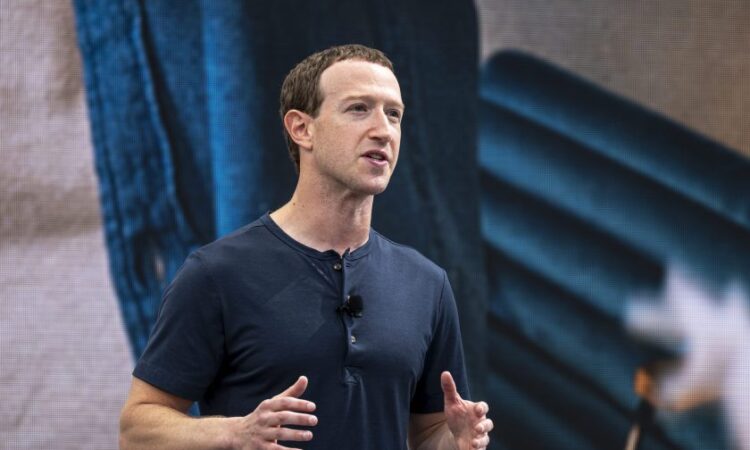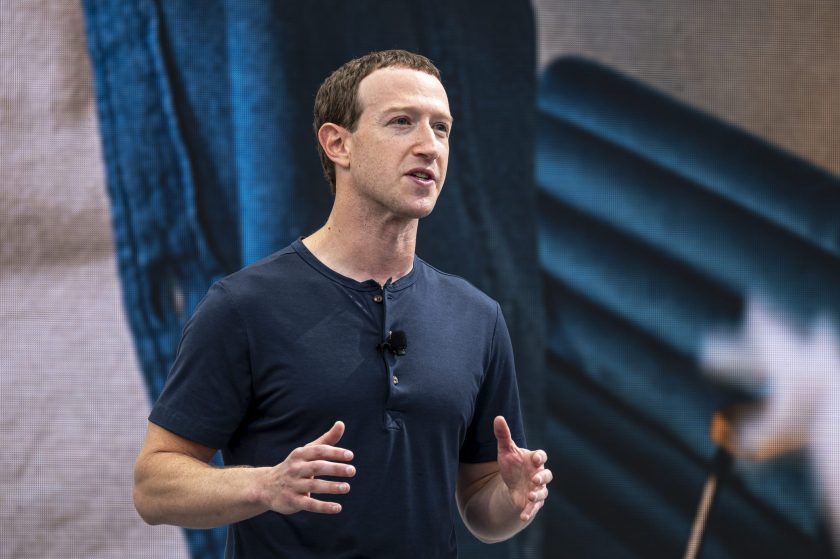

Meta CEO Mark Zuckerberg has given Europeans a tough choice: pay or be tracked. David Paul Morris—Bloomberg via Getty Images
Late last week, I got the notice from Meta that I, a person living in the EU, would need to either agree to see ads on Facebook and Instagram—with the targeting coming from me being tracked around online—or pay at least €9.99 ($10.68) per month for an ad-free experience (it’s €3 more if I pay on mobile, due to Apple’s commission).
This is supposed to bring Meta into compliance with Europe’s data protection laws, after a ruling earlier this year in which the EU’s top court scrapped the company’s existing legal justification for ad-targeting. The aim of those laws is to protect my fundamental rights to privacy and data protection, as promised under the EU Charter of Fundamental Rights.
As I briefly mentioned at the end of Thursday’s newsletter, I chatted with Max Schrems (the Austrian activist lawyer whose challenges to Facebook’s privacy practices led to the slow judicial whittling away of the company’s legal basis for data processing) about Meta’s latest move. He framed this as Meta forcing us to effectively sell our fundamental rights.
“Is the right to free speech, right to vote, or the right to your kidney next?” Schrems asked, only a bit facetiously. Ten bucks a month is, he added, quite a steep ask for people who may already be suffering in the cost-of-living crisis. As TechCrunch’s Natasha Lomas has also noted, Meta’s math is also questionable, with the monthly fee apparently being far higher than the value of the advertising that’s being rejected—this could come into play during a legal challenge to Meta’s new move, as the courts have said it can only charge an “appropriate” fee. A study last year found only 9% of people would or could pay to use Facebook at a monthly fee of €5, which is half what Meta ended up charging.
Many people may have little choice but to keep using Meta’s services, as they are ubiquitous and stepping away would have a serious impact on the users’ lives; there is no viable alternative to Facebook that offers comparable functionality and breadth of use, nor such a wide adoption by businesses. This could call into question the validity of the consent being gained if a cash-strapped user is effectively forced to submit to tracking. The think tank Breugel has already concluded that Meta’s new free option is unlikely to be legal under EU privacy or competition laws.
These issues will need to be tested in court, but I can already say that I found Meta’s method of proposing the choice to be coercive. The choice was sprung on me with no notice (well, apart from me being a journalist who knew it was coming, but that doesn’t count) and I was immediately unable to do anything without choosing. I couldn’t access my settings to disable my Facebook account, meaning there was not even a hidden third option along the lines of “Neither please; I’m leaving.” I couldn’t drop a message to my friends around the world, explaining that I would be leaving Facebook and giving people other ways to contact me in the future.
So, faced with the sudden choice—and with the knowledge that this was all legally rather dubious—I opted for the ads. I won’t say I had no choice, particularly as I can afford the fee (though those subscriptions sure are adding up). But I did feel railroaded, and I think there’s a good chance that the courts will see this mechanism in a similar light.
More news below.
David Meyer
Want to send thoughts or suggestions to Data Sheet? Drop a line here.
NEWSWORTHY
ON OUR FEED
“We were one of the most successful esports organizations out there, one of the biggest names, but our revenue was close to zero.”
—Peter Dager, former CEO of e-sports organization Evil Geniuses, in an interview with Decrypt about the challenges in the competitive gaming industry
IN CASE YOU MISSED IT
Melinda French Gates: ‘It’s time to change the face of power in venture capital’, by Melinda French Gates (Commentary)
Nvidia CEO Jensen Huang says his AI powerhouse is ‘always in peril’ despite a $1.1 trillion market cap: ‘We don’t have to pretend…we feel it’, by Steve Mollman
Foxconn sends satellites to space as the business of making iPhones and laptops slows, diversification effort accelerates, by Bloomberg
Chamath Palihapitiya says there’s a ‘reasonable case to make’ that the job of VC ‘doesn’t exist’ in a world of AI-powered two-person startups, by Steve Mollman
Warner Bros. Discovery lost 2.5 million streaming subscribers in the last 6 months while its rivals grew—and sports are partly to blame, by Paige Hagy
Salesforce’s former chief trust officer joins Atlassian, adding to the growing ranks of veteran CTrOs, by Eamon Barrett
BEFORE YOU GO
More Microsoft money. OpenAI CEO Sam Altman expects Microsoft to throw a bunch more moolah in his company’s direction. “There’s a long way to go, and a lot of compute to build out between here and [artificial general intelligence],” he told the Financial Times. “Training expenses are just huge.”
Altman also framed OpenAI’s current products as not really being its real products at all. “Those are channels into our one single product, which is intelligence, magic intelligence in the sky,” he said. “I think that’s what we’re about.”





